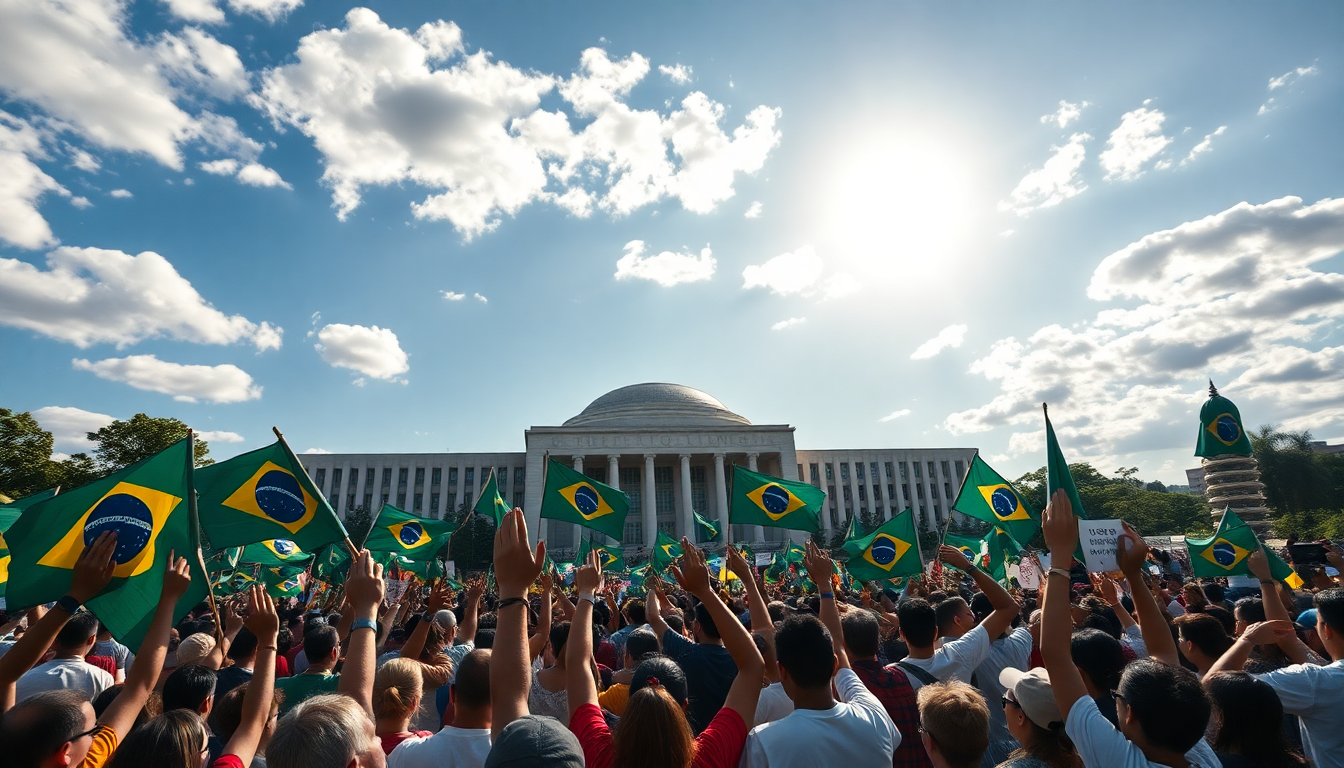Table of Contents
The political landscape in Brazil is buzzing with tension as former President Jair Bolsonaro finds himself mired in legal troubles following his election loss in 2022. This situation has rapidly escalated into a major crisis, capturing international attention and raising serious questions about the future of democracy in the country. Could the fallout from these events ripple beyond Brazil’s borders, impacting diplomatic relations and economic strategies? Let’s dive into what’s happening.
A Closer Look at the Political Climate
Brazil is now on the world stage, as Bolsonaro’s actions after the election have given rise to allegations of an attempted coup. The former leader is facing a slew of investigations and trials, with prosecutors claiming he devised a plan to undermine the electoral process. The Federal Police have put together a detailed report outlining this alleged scheme, which reportedly involves sowing distrust among the public, pressuring military officials, and inciting unrest in the capital, Brasília. Can you imagine the tension brewing in such a volatile atmosphere?
The situation reached a boiling point when Bolsonaro’s son met with U.S. officials, hinting at potential sanctions against Brazilian Supreme Federal Court Justice Alexandre de Moraes. This meeting, along with public statements from figures like Donald Trump, highlights the growing international angle to Brazil’s political turmoil, as foreign leaders express concerns about the internal conflicts and their implications for democratic governance. What does this mean for Brazil’s standing on the world stage?
International Responses and Ramifications
The international community has reacted swiftly to these developments. Trump’s letter to Bolsonaro expresses a shared worry over what he terms unjust political persecution. His request for an end to the trial against Bolsonaro has raised eyebrows and hints at a possible shift in U.S. foreign policy towards Brazil, depending on how these legal battles unfold. The looming threat of tariffs on Brazilian products adds another layer of complexity to diplomatic relations between the two nations. How will this affect everyday Brazilians?
Additionally, Lula’s response to Trump’s tariff threats reveals the intricate dance of international relations. His pledge to retaliate against any trade measures signals a commitment to protecting Brazil’s sovereignty, all while navigating the tricky waters of global commerce. These exchanges further entangle Brazil’s political landscape, intertwining domestic legal struggles with international trade and diplomacy. Is Brazil ready to take a stand?
Looking Ahead: What’s Next for Brazil?
The implications of this political crisis are massive. If Bolsonaro faces conviction, the fallout could reshape Brazilian politics for years, potentially leading to an even more polarized atmosphere. These legal battles not only endanger Bolsonaro’s political future but also pose challenges for Lula’s current administration. So, what’s next?
As we move forward, all eyes will be on how these events unfold and the potential for reform within Brazil’s political scene. Observers are curious to see if international pressure will sway domestic policies and whether Brazil can emerge from this turmoil with a renewed commitment to democratic ideals. Can Brazil turn this crisis into an opportunity for growth and stability?


